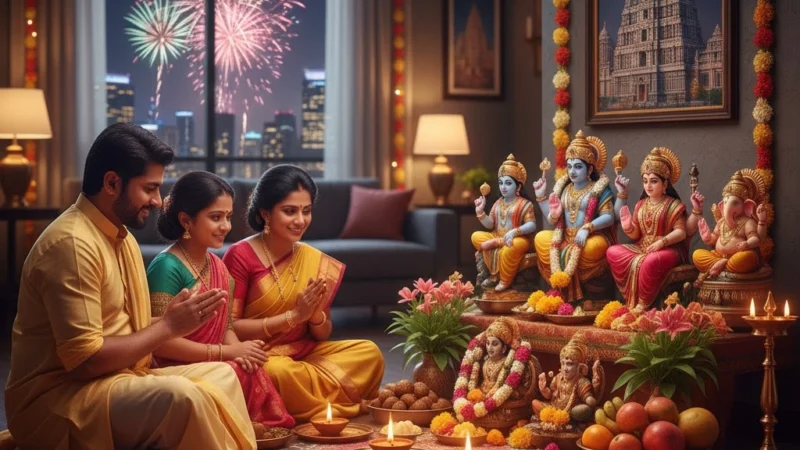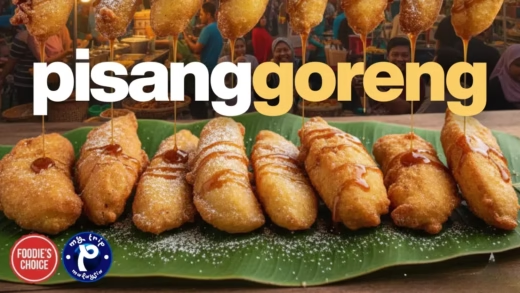Stories Behind Popular Hindu Gods During Deepavali in Malaysia

Deepavali, or Diwali, is one of the most vibrant and spiritually significant festivals celebrated by the Indian community in Malaysia. Known as the Festival of Lights, it symbolizes the victory of light over darkness, knowledge over ignorance, and good over evil. Over the years, Malaysian Deepavali celebrations have evolved to combine traditional Hindu practices with the multicultural essence of Malaysia.
Origins and Evolution of Deepavali in Malaysia
The celebration of Deepavali in Malaysia traces back to the arrival of Indian migrants, particularly during the British colonial period. These early settlers brought their cultural and religious traditions, including the Deepavali festival, which gradually became a staple of Malaysian Indian culture. Today, Deepavali is not only a religious observance but also a cultural celebration embraced across communities.
Long-tail SEO: Deepavali traditions in Malaysia, Malaysian Deepavali history and culture.
Significance of Deepavali for the Indian Community
For Malaysian Indians, Deepavali represents spiritual renewal, family bonding, and community celebration. It is closely tied to Hindu mythology, with stories about various deities forming the foundation of the festival’s customs.
Lord Rama and the Triumph of Good over Evil
One of the most celebrated legends is that of Lord Rama, who defeated the demon king Ravana and returned to Ayodhya. To welcome him, people lit rows of oil lamps (diyas), symbolizing the triumph of light over darkness. This story is central to Malaysian Deepavali rituals, emphasizing righteousness and moral victory.
Goddess Lakshmi and the Blessing of Prosperity
Another key deity during Deepavali is Goddess Lakshmi, the goddess of wealth and prosperity. Devotees clean and decorate their homes, light diyas, and offer prayers to invite her blessings, reinforcing the connection between spiritual and material well-being.
Long-tail SEO: Malaysian Indian festival celebrations, Hindu gods Deepavali Malaysia.
Traditional Customs and Rituals
Deepavali rituals in Malaysia vary by region, but common practices include home decorations, temple visits, and festive lighting.
Home Preparations
Families clean and decorate their homes with rangoli patterns, kolams, and colorful lights, creating a warm and inviting environment for the festival. The act of cleaning is considered a way to remove negative energies and welcome prosperity.
Temple Visits
Devotees flock to prominent temples such as Batu Caves in Selangor and Sri Mahamariamman Temple in Kuala Lumpur, performing special prayers and rituals. Temples host cultural programs, religious discourses, and community feasts.
Fireworks and Light Displays
Lighting diyas and bursting fireworks are traditional practices that symbolize victory over darkness and the celebration of joy. The dazzling displays create a communal festive atmosphere throughout neighborhoods.
Long-tail SEO: where to celebrate Deepavali in Malaysia, Malaysian temple Deepavali events.
Regional Celebrations Across Malaysia
Kuala Lumpur and Brickfields
In Kuala Lumpur, Brickfields (Little India) is the epicenter of Deepavali festivities. Streets are adorned with vibrant lights and decorations, while cultural performances and night markets attract locals and tourists alike.
Penang
Penang celebrates Deepavali with grandeur at temples like Muniswarar Temple in Jalan Baru and Arulmigu Karumariamman Temple in Seberang Jaya. Rituals include prayers, religious ceremonies, and community gatherings.
Johor and Ipoh
In Johor and Ipoh, communities celebrate with a blend of traditional rituals and modern festivities. Temples and cultural associations host events ranging from prayers to family-oriented activities and open houses, promoting unity and cultural exchange.
Traditional Foods and Sweets
Food is an integral part of Malaysian Deepavali celebrations, with a wide variety of sweets and savory snacks prepared at home or bought from local markets.
Savory Snacks
- Murukku: Crispy spiral snacks made from rice flour and urad dal.
- Achu Murukku (Rose Cookies): Deep-fried treats popular during Deepavali.
Sweets
- Laddu: Sweet balls made from flour and sugar.
- Gulab Jamun and Carrot Halwa: Regional favorites enjoyed by families across Malaysia.
Festive Meals
Families come together to enjoy biryani, mutton curry, and vegetarian dishes, reflecting the rich culinary heritage of the Indian community in Malaysia.
Long-tail SEO: Malaysian Deepavali food traditions, Deepavali sweets in Malaysia.
Decorations and Family Practices
Deepavali is also about family bonding and hospitality. Homes are decorated with diyas, candles, and lights. Families wear new clothes, exchange gifts, and host open houses, inviting neighbors and friends to celebrate together.
Long-tail SEO: Deepavali home decorations Malaysia, Malaysian Indian family Deepavali traditions.
Conclusion
Malaysian Deepavali is a vibrant celebration that combines the rich stories of Hindu gods with regional customs, temple rituals, festive foods, and family traditions. From Kuala Lumpur to Penang, Johor, and Ipoh, the festival reflects the spiritual, cultural, and communal essence of Malaysian Indian life. Experiencing Deepavali in Malaysia offers a unique glimpse into the country’s multicultural heart, making it a must-see festival of light and joy.







Comments are closed.